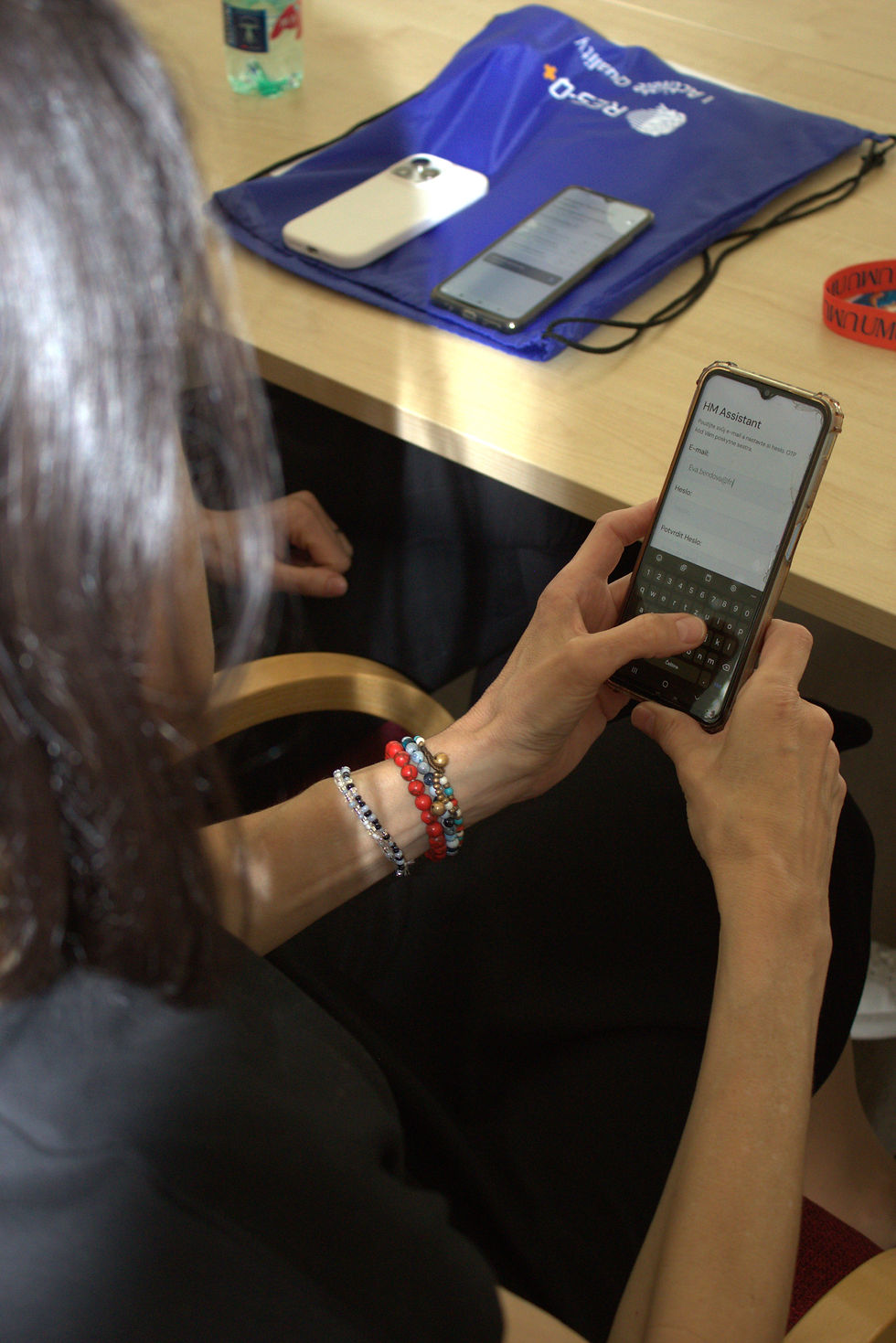PILOT STUDY VAST BEGINS: CZECH HOSPITALS START TESTING OUR PROTOTYPE OF THE VIRTUAL ASSISTANT FOR PATIENTS
- janavyklicka
- Jun 6, 2025
- 1 min read
Updated: Aug 14, 2025
A dedicated workshop on how to use the Virtual Assistant and how to communicate its purpose and functionality to patients was held at St. Anne’s University Hospital in Brno, hosted by the International Clinical Research Center (ICRC). The event, which took place on Friday, 30 May, marked the official launch of the pilot study VAST (Virtual Assistant for Stroke Treatment), a milestone in integrating digital innovation into routine stroke care.

The first version of the Virtual Assistant for patients is now being tested in selected hospitals across the Czech Republic. The tool is designed to support patients in monitoring their health and recovery throughout their post-stroke journey. This pilot phase will also gather valuable feedback from clinicians and study coordinators to help refine the tool and ensure it meets real-world clinical needs – including how it is explained to patients in a clear and accessible way.

The testing is being conducted as part of the STROCZECH project, which is committed to improving stroke care through participation in clinical studies. As part of this effort, study nurses from participating hospitals are working directly with patients to test the Virtual Assistant in real clinical environments.
The VAST study represents a crucial step toward smarter, data-driven stroke care – where innovation directly supports those on the front lines of patient treatment. Importantly, this pilot study will also generate essential data and insights that will inform the design and implementation of a full-scale clinical trial planned for autumn 2025.

6. June 2025 | Jana Vyklická
.png)



Comments